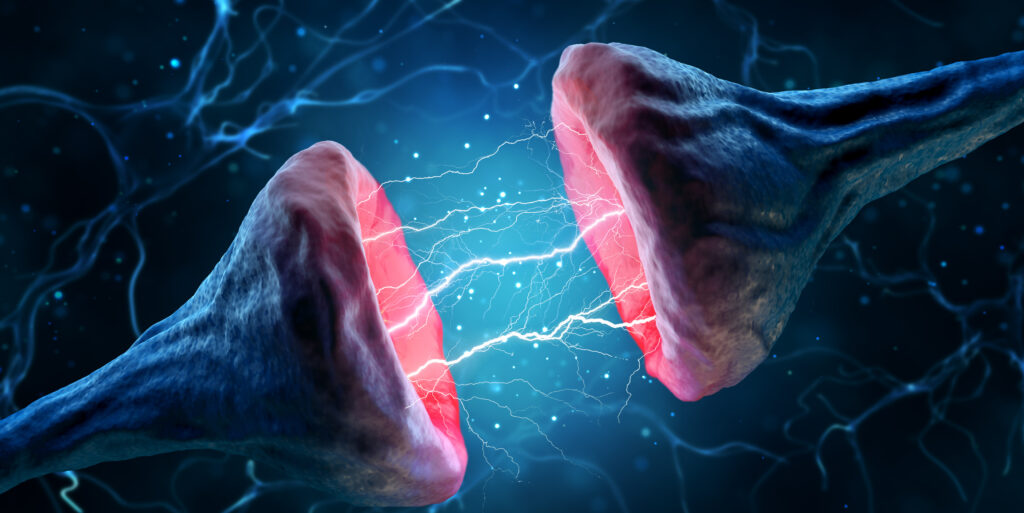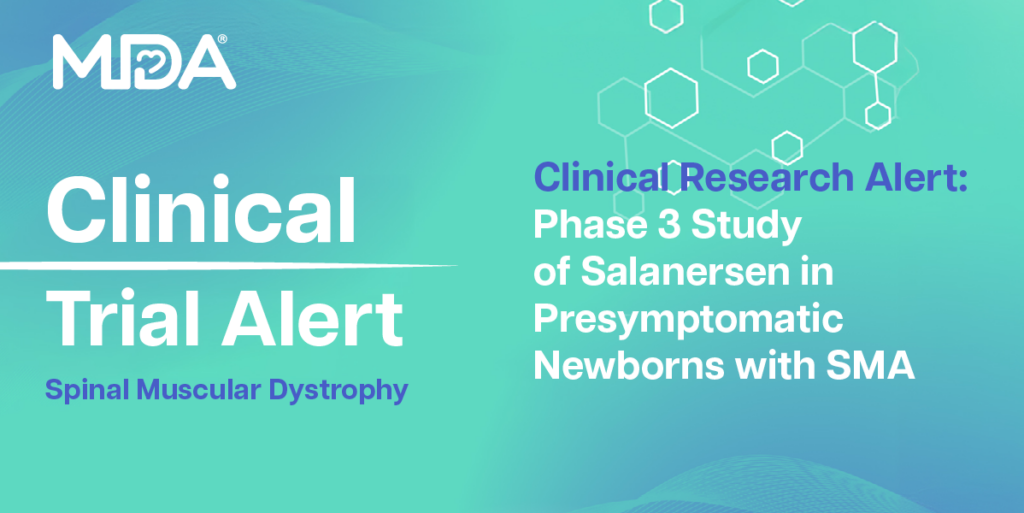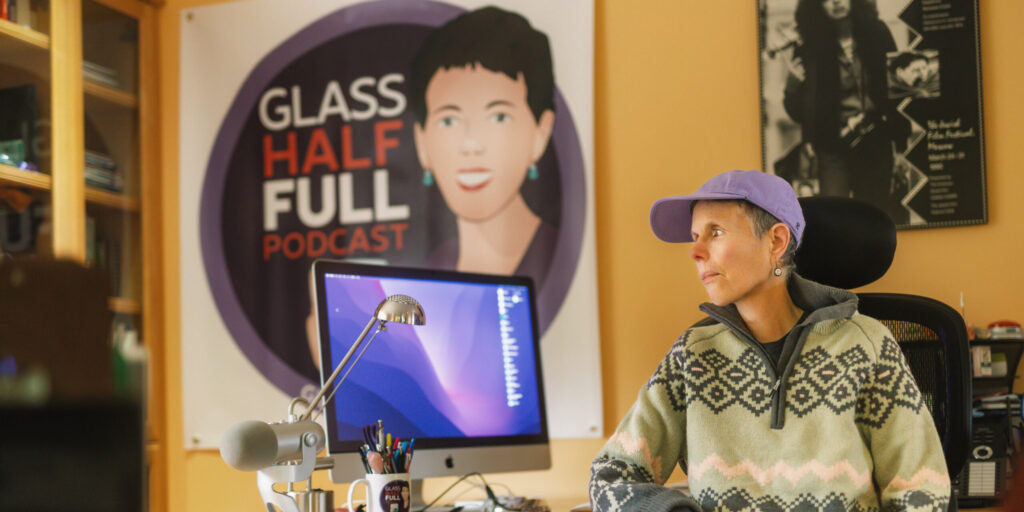
6 Questions to Ask Your Doctor to Get a Diagnosis
By Jason Henninger | Monday, November 20, 2023
With a rare disease, it can take a long time to get a diagnosis. Doctors may not recognize the symptoms of a neuromuscular disease they’ve never seen before. Symptoms may mimic those of more common diseases. Tests may come back inconclusive. Misdiagnosis is common.
The long diagnostic journey is frustrating for everyone involved — the individual living with a neuromuscular disease, their family, and even the doctors trying to find definitive answers. Is there anything you can do to make the journey go more smoothly?
While you can’t order diagnostic tests or make a diagnosis, knowing what questions to ask in healthcare settings could help your providers focus their efforts and get you more information about what’s going on in your body.
We asked a neurologist and a member of the neuromuscular disease community to share their experiences and advice on the most important questions to ask when you’re seeking a diagnosis.
1. Have you seen any patients with similar symptoms? If not, can you refer me to a specialist who has seen cases like mine?
Most diagnostic journeys start with a visit to a primary care provider. It’s important to give your doctor as much detail as you can about any muscular symptoms, such as loss of strength or reflexes, twitching or cramping, decreased sensation, or problems with walking. For a child, share any concerns about delayed developmental milestones, such as sitting or walking.
It’s also helpful to give your doctor a detailed family history. Before your appointment, ask relatives if they know of any family members who have had muscular issues or needed a walker or wheelchair at a young age. These facts will help the primary care provider determine what kind of specialist you might need to see. For neuromuscular issues, often, this is a neurologist.
“After getting a referral to a neurology or pediatric neuromuscular center, ask when you’re making the appointment if you’ll be seeing someone who specializes in muscle and nerve diseases,” says Jena Krueger, MD, a pediatric neurologist and medical director for the pediatric neuromuscular clinic and the pediatric neuromuscular treatment program at Corewell Health Helen DeVos Children’s Hospital in Michigan.
Even within a specialty such as neurology, doctors have different levels of training and experience with specific diseases. If the specialist you see seems unfamiliar with your symptoms, you can ask for a referral to a specialist who has experience with cases like yours.
2. Do you work in a multidisciplinary team?
When you visit a new clinic or specialist, this question will help you get a sense of the scope of what they can do. A multidisciplinary team brings together medical professionals with different areas of expertise. This can be especially beneficial in complex cases, such as diagnosing rare diseases.
“You also want to ask what resources are available in the clinic,” Dr. Krueger says. “For example, in our pediatric neuromuscular clinic, we have genetics, which plays a huge role in diagnosis and treatment, and it’s wonderful if you can have that available on the first visit.”
MDA Care Center teams may include a variety of providers, such as genetic counselors, physical and occupational therapists, dietitians, and social workers. These healthcare professionals work with doctors to guide individuals and families through the diagnostic process and — once a diagnosis is confirmed — help them explore options for treating and managing their condition.
3. What tests do you offer? Do you recommend genetic testing for me?
There is an array of diagnostic tests out there, so you’ll need to know which ones your doctor thinks could provide answers for you.
You can ask how painful or invasive a test might be and how much time it will take. Also, insurance varies, and sometimes it isn’t feasible — financially or physically — to undergo multiple tests at once.
Common diagnostic tests for neuromuscular diseases include:
- Electromyography, which measures the electrical activity of muscles and nerves.
- Nerve conduction studies, which measure the speed and strength of electrical signals as they travel through nerves.
- Imaging studies, including magnetic resonance imaging and computed tomography scans that provide views of muscles, nerves, and other structures within the body.
- Blood tests that measure levels of enzymes, proteins, or antibodies that may be elevated.
- Functional tests that assess muscle strength, reflexes, coordination, and balance.
- Muscle biopsies, which help identify abnormalities in muscle structure and function.
- Genetic testing, which analyzes DNA to detect gene mutations associated with inherited diseases.
Genetic testing advances all the time, and your doctor may refer you to a geneticist or genetic counselor to help determine which genetic testing panel would be best for you. Even if you’ve had a genetic test before, your doctor might recommend testing again or trying a different testing panel.

Amy Shinneman received a Bethlem myopathy diagnosis after 43 years of searching.
Having genetic testing earlier would have helped MDA National Ambassador Amy Shinneman. Her diagnostic journey began as a baby and didn’t lead to an accurate diagnosis until she was in her 40s.
Over the years, Amy’s parents tried everything they could think of to reach a diagnosis, and she underwent a variety of diagnostic tests. It wasn’t until 2018, when her neurologist ordered a new genetic test, that she could finally put a name to her condition: Bethlem myopathy.
4. How confident are you that you will be able to diagnose me, and what does that timeframe look like?
Some patients, like Amy, have a long journey toward a definite diagnosis. It’s OK, she says, to make sure that the doctor is confident they can help and to ask how long it might take.
“As I got older, I got better at saying, ‘Hey, I’ve been looking for this many years for a diagnosis, so please don’t say things to me that you don’t know for sure,’” she says.
A doctor who is honest with you, even if it’s to say, “I don’t know, but I’ll find out,” may be someone you want on your care team.
5. Where can I find more information on my own? Can I show you the information I find in my research?
While going through numerous tests and doctor visits, it’s natural to try to figure things out on your own.
“I would go into that cautiously,” Amy warns. “When we’re desperate for answers, we can make ourselves believe we fit into certain categories.” She says that support groups can be a better source of information than the internet.
When you do search the internet, use reliable sources of information on neuromuscular diseases, treatments, and research, and discuss what you find with your healthcare team.
“I tell my patients it’s fine to Google, but use your physician as your backup and reference for the truth,” Dr. Krueger says. “The internet can be a valuable resource, but it’s really important that you use that as a jumping-off point for your questions and your discussion with your physician, and not your only source.”
6. How do I contact you with any additional questions?
Don’t be afraid to ask a lot of questions. Sometimes, we might fear that a question is foolish or that we’re annoying the doctor. Put those fears away and ask, ask, ask.
Rare diseases are complex, and even the experts are always learning. Make sure you know how to contact your healthcare providers and when is the best time to discuss any additional concerns.
Perhaps the most important thing for individuals and their families to remember while going through the diagnostic journey is simply to keep going. Keep searching and asking despite the setbacks and frustrations.
“My overall message is don’t give up and don’t lose hope,” Amy says. “I would say that 44 years is a very long time to search. But looking back, it was worth it to keep fighting for that answer.”
Next Steps and Useful Resources
- MDA Care Center specialists can help diagnose and treat neuromuscular diseases.
- The MDA Resource Center provides one-on-one support for families looking for neuromuscular disease information and resources. Call 833-ASK-MDA1 or email ResourceCenter@mdausa.org
- Stay up-to-date on Quest content! Subscribe to Quest Magazine and Newsletter.
Disclaimer: No content on this site should ever be used as a substitute for direct medical advice from your doctor or other qualified clinician.




